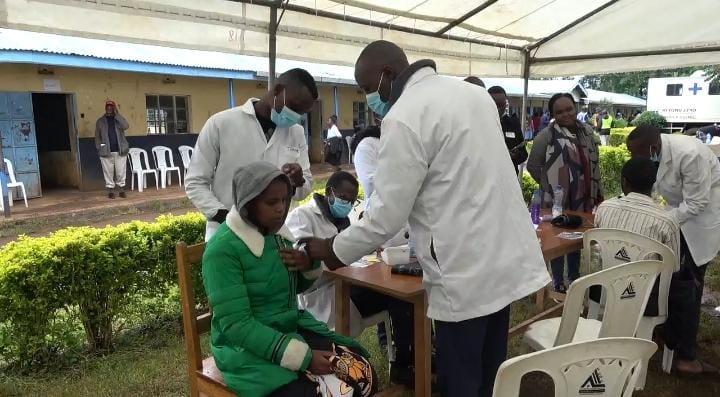Kiambu,
Thursday April 25, 2024
KNA by Wangari Ndirangu
Farmers will in the next two months be able to detect easily if their farm animal has mastitis thanks to a new technology by the Kenya Agricultural Livestock Research Organization (KALRO).
Symptoms of mastitis include breast swelling and tenderness or warmth to the touch and the burning sensation is felt while breastfeeding within the first three months and thus has been a major challenge for most livestock farmers causing production losses and excessive antibiotic use.
Dr. Monicah Maichomo, a senior research scientist working with Veterinary Research Institute (VRI) at KALRO said that the rapid diagnostic test will see farmers able to identify a sick animal early.
The researcher the easy-to-use kit was informed since the current diagnostic approaches require technical expertise and farmers need an affordable easy-to-use mastitis diagnostic technology that they can use at household level.
“This is a simple kit where the farmer just puts a drop of milk on that litmus paper test method then it changes color. If it changes to blue then the farmer will know that the disease is there. If the color of the milk remains the way it is then there is no disease,” she told KNA.
Maichomo noted that once farmer detects the disease, they are able to apply husbandry practices such as segregation.
“We hope to finalize, package and register this kit for our dairy farmers and we are calling upon stakeholders to come on board as we commercialize the product as it will solve the problem of mastitis. The kit can be applicable to cattle, goats and even camels”, she said.
Peter Njuguna explained to KNA when showcasing some of the various technologies at KALRO that the disease occurs in two forms: one can be seen by the naked eyes and that is clinical mastitis while the other one is the sub- clinical mastitis, which the farmer cannot see and thus the reason for the test kit.
He pointed out that the kit will enable active involvement of farmers in diagnosis and control of mastitis, helping in early detection and treatment of mastitis thereby reducing losses due to milk rejection.
The disease is a constraint to dairy production and may account for 70– 80 percent of the total losses in milk production.
Njuguna warned farmers though that if they detect an animal with mastitis, they should milk it last so as to avoid transmitting the disease to the healthy animals.
Currently, Njuguna said that the technology is only available at the KALRO Muguga and that onces it is registered with the Veterinary Medicine Directorate it will be commercialized and available to farmers.
“we are working on the registration process, it will be out in the next two months and we already having a potential partner who will do mass production.The mastitis kit will empower farmers in terms of disease control.
It will address the challenge of milk rejection at the collection point and for a farmer detecting it early means it can easily be treated.
The kit will be affordable at a cost of Sh12 per strip and will be packed in packages of 50 to 100 strips, and has a shelf life of six months.
Mastitis is a global problem as it adversely affects animal health, quality of milk and the economics of milk production, affecting every country, including developed ones and causes huge financial losses.
Early detection and correct mastitis treatment are crucial for the cow’s recovery, thus increasing animal health welfare and minimizing economic losses for the farmer.
Courtesy; KNA





